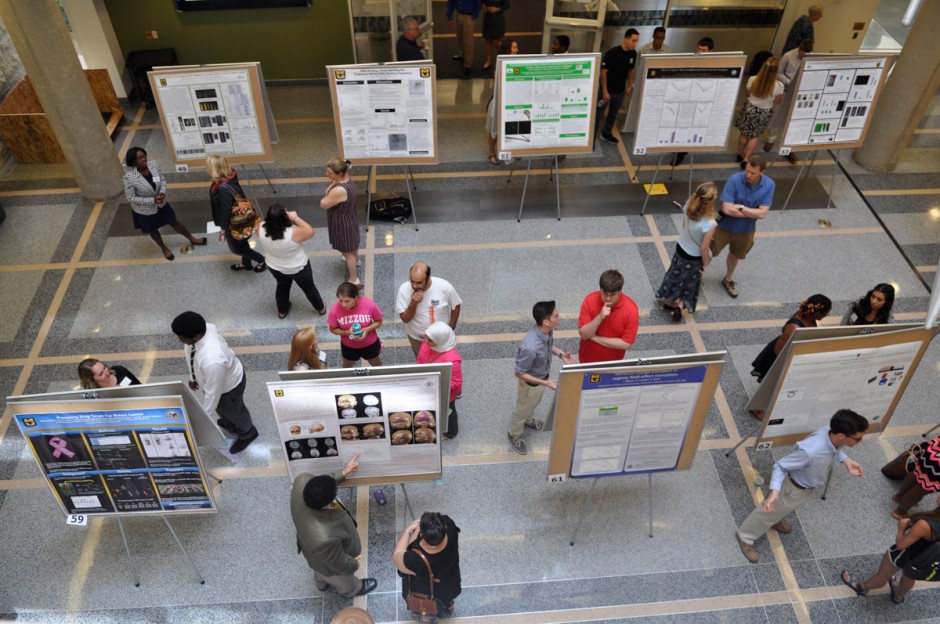
More than 130 students from MU and other universities presented 126 science projects in poster format July 30 at the Summer 2015 Undergraduate Research & Creative Achievements Forum in the Bond Life Sciences Center.
Linda Blockus, MU director of Undergraduate Research, said the summer research programs help young scientists develop their skill sets, offer MU students a chance to socialize and work with peers from other universities, and act as a recruitment tool for graduate school programs at the university.
“We are developing young scientists for the future of our society,” Blockus said.
For nine weeks, undergraduate science and engineering students work on a project with at least one MU faculty mentor. Mentors from 20 MU departments and divisions took part this year.
Students apply for the research programs. This year, more than 50 students were from other universities, including several in other countries, Blockus said.
Sophomore Elliot Jeon Lee was from the University of Waterloo in Ontario, Canada. The biomedical sciences major researched the speed of neurons, work that might have translational applications in human and animal health. Lee’s mentors were Johannes Schul and David J. Schulz, professors in the Division of Biological Sciences.
“The project helped me to think concisely and scientifically about questions,” Lee said amid the bustle of poster day. “It helped me understand that science requires a great deal of work and time.”
Mary Madeline Willis, an MU sophomore majoring in biochemistry, presented on the genetic diversity of Missouri salamanders. Her mentor was Lori Eggert, a professor in the Division of Biological Sciences.
Willis, who applied because of her interest in evolutionary biology, said she learned a lot about ecology and statistical analysis. Willis said of Eggert, “She took a lot of her own time to make sure I really understood what was going on to make sure I was having the best possible experience.”



